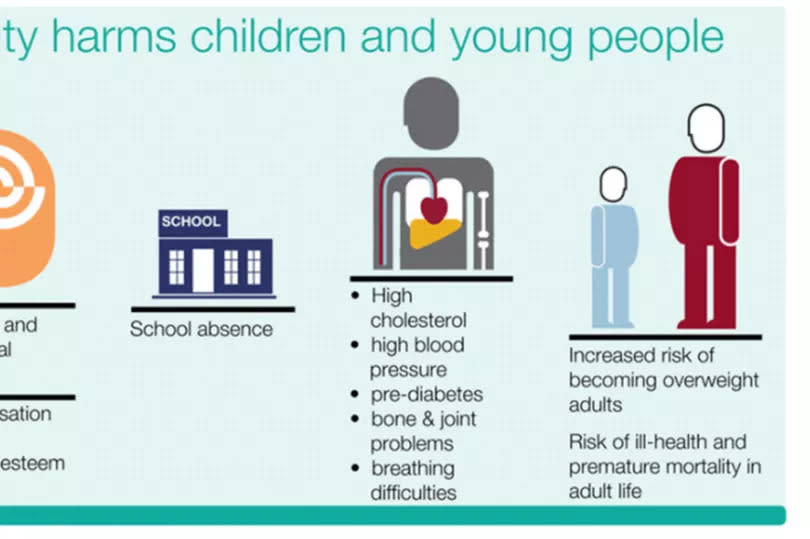Childhood obesity on Teesside: The amount of overweight kids in Teesside borough as healthy weight gap is highlighted

Figures have shown the gap between Redcar and Cleveland and the rest of the country when it comes to levels of childhood obesity.
Information produced by South Tees public health officials, as part of plans for a ‘healthy weight declaration’, show that by year six - the final year of primary school - 16% of pupils in the borough were deemed overweight, with 19% obese and 6% severely obese.
In England as a whole 14% of year six pupils in 2022/23 were overweight by this stage, while 17% were obese and, similarly, 6% severely obese. Only 58% of children in year six had a healthy weight in Redcar and Cleveland, compared to 62% across England.
READ MORE: Debate over whether local authority has 'duty' to maintain potentially life saving defibrillators
READ MORE: Group name revealed for Teesside hospital trusts after a 'lot of reflection'
The data was shared with members of Redcar and Cleveland Council’s adults, wellbeing and health scrutiny committee. It highlighted how by year six 15% of youngsters who were a healthy weight when entering reception stage at primary school would become overweight and a further 10% clinically obese.
The highest proportion of children in the borough - when taking into account both figures from reception and year six stages between 2018/19 and 2021/22 - who were either overweight or obese was in the most deprived ‘decile’, some 37.5%, demonstrating a clear link between poverty and weight.
The presentation said childhood obesity could have serious implications for physical and mental health, including bone and joint problems and breathing difficulties, along with low self-esteem. An increased risk of becoming overweight as adults could also pave the way for potential diabetes and a risk of ill health and premature death in later life.

It said: “Obesity is clearly patterned with deprivation. Obesity reduces life expectancy and increases morbidity including cardiovascular disease, type 2 diabetes, at least 12 types of cancer and poor mental health.”
An 'obesogenic' environment was highlighted, which shaped food and physical activity choices, with evidence suggesting that children’s exposure to foods high in fat, sugar and salt through advertising affected what and when they ate. There were also said to be more than 118 fast food outlets in the borough per 100,000 residents.
Meanwhile, the population was about 20% less active than it was in the 1960s due to an increase in sedentary lifestyles.
The healthy weight declaration has prompted a framework to be implemented in Redcar and Cleveland with a view to taking a “whole systems approach” to addressing obesity. This will include sixteen commitments agreed by the council aimed at promoting healthy weight.
The whole systems approach tackles a number of areas and includes influencing what people buy and eat, promoting active travel and the greater use of public transport, providing weight management programmes and designing built and natural environments so as to get more people exercising outdoors.
The council's corporate plan, meanwhile, which sets out a vision for the organisation, includes policy pledges to improve health and wellbeing, address health inequalities and reduce child poverty, allowing people to live well into their old age.

 Yahoo News
Yahoo News 
